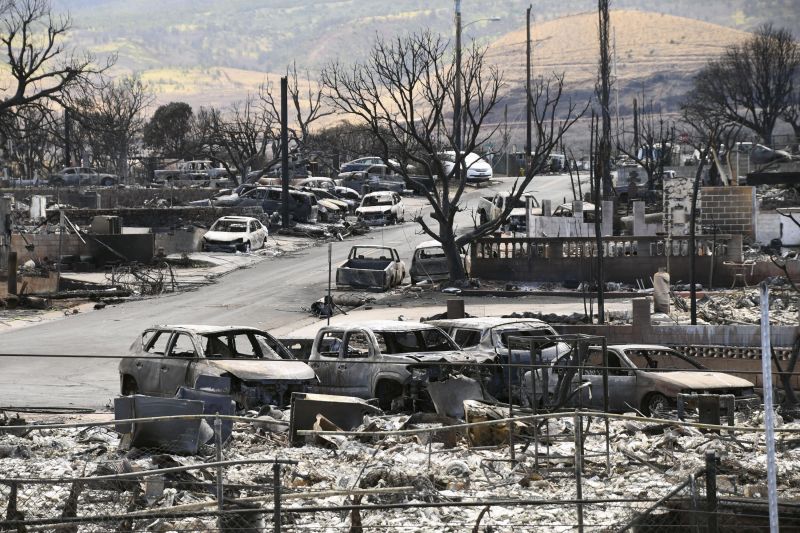
The Impact of Shipping Regulations on Global Warming

Exploring the controversial debate around the impact of shipping regulations on global warming and the environment.
The Role of Ships in Air Pollution
The vast cargo ships that traverse the world's oceans have long been a source of concern due to the harmful air pollution they emit. These ships leave behind a visible trail of pollution in the form of long-lasting, wispy clouds that have a detrimental impact on the environment. The interaction of sulfur dioxide particles from ships' smokestacks with water vapor creates low-lying, highly reflective clouds, contributing to the global issue of air pollution.
Damage in Lahaina caused by deadly wildfires on the island of Maui in Hawaii on August 16, 2023.
The sulfur pollution from ships has been linked to tens of thousands of premature deaths annually, making it a significant public health concern. However, the paradoxical cooling effect of this pollution, which helps reflect sunlight away from the Earth, has added complexity to the debate surrounding the regulation of shipping emissions.
The Controversial Impact of Shipping Regulations
In 2020, the International Maritime Organization (IMO) took a significant step in addressing the harmful effects of shipping pollution by slashing the sulfur content permitted in ships' fuel by 80%. This move was celebrated as a victory for human health, with an estimated 30,000 premature deaths being avoided annually as a result. However, the unintended consequences of these regulations have sparked a heated debate within the scientific community.
The reduction in sulfur emissions from ships has raised concerns about its potential contribution to an acceleration of global warming. Some scientists argue that the sharp decline in ship tracks, which are a visible indicator of pollution, may have inadvertently disrupted the cooling impact of the sulfur pollution, leading to unexpected consequences for global temperatures.
The Debate on Global Warming Acceleration
The impact of shipping regulations on global warming has become a subject of intense scrutiny and debate among climate scientists. While some experts have proposed that the reduction in shipping pollution is a primary driver of an alarming acceleration in global warming, others have expressed skepticism, citing the complex relationship between pollution particles and cloud formation as a major challenge in understanding the true impact.
The controversy surrounding the potential warming influence of the shipping regulations has sparked conflicting theories and predictions. From projections of minimal warming effects to more significant temperature increases, the scientific community remains divided on the extent of the impact and the urgency of addressing this complex issue.
Conclusion
The reduction of shipping pollution has raised important questions about its unintended consequences on global warming and climate patterns. While the scientific community grapples with differing viewpoints and predictions, it is essential to recognize the complexity of the relationship between pollution, cloud formation, and the Earth's climate. As the debate continues, the need for comprehensive research and evidence-based policy decisions becomes increasingly evident in addressing the multifaceted challenges of global warming and environmental sustainability.










